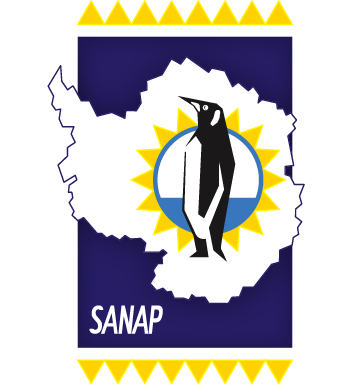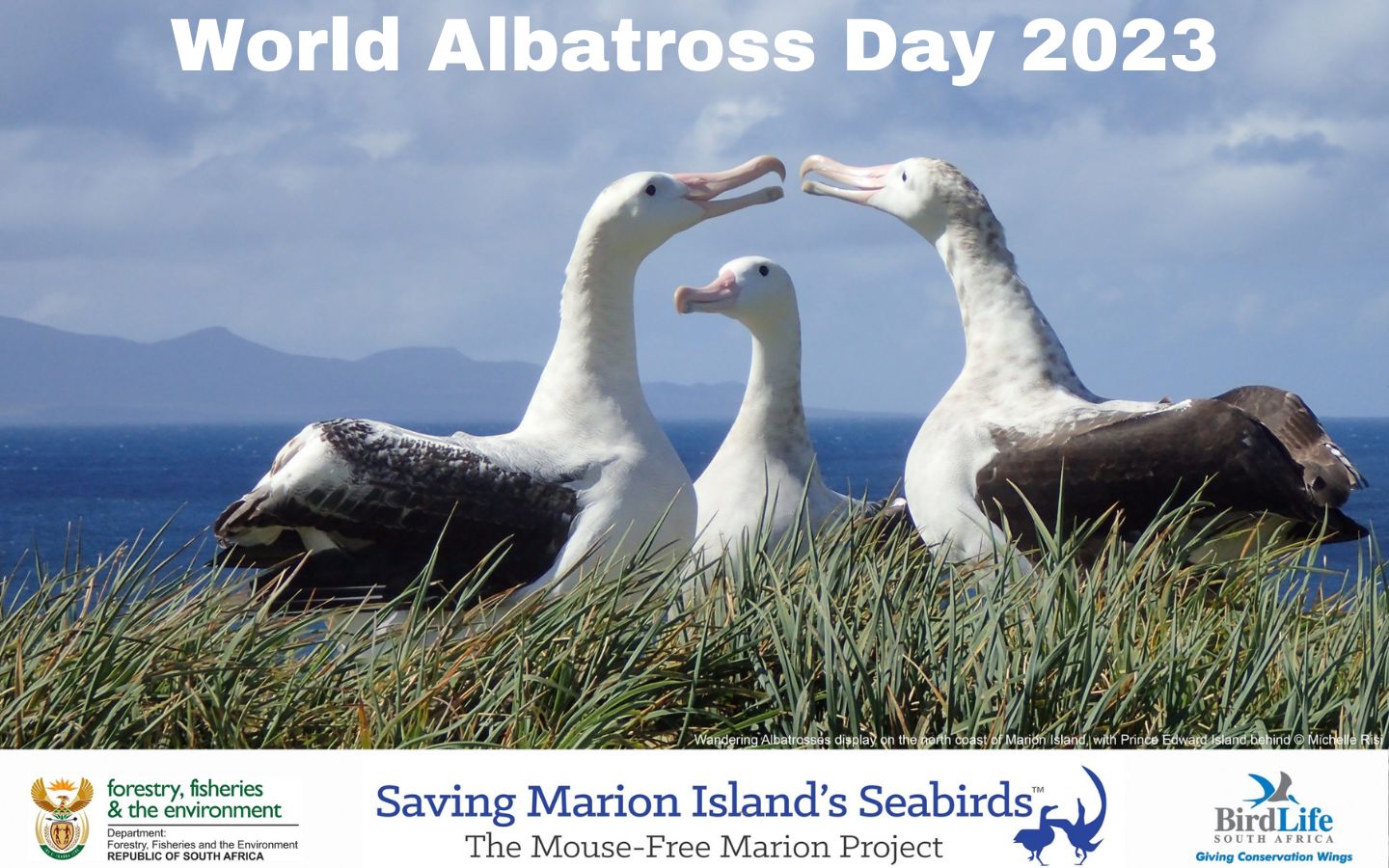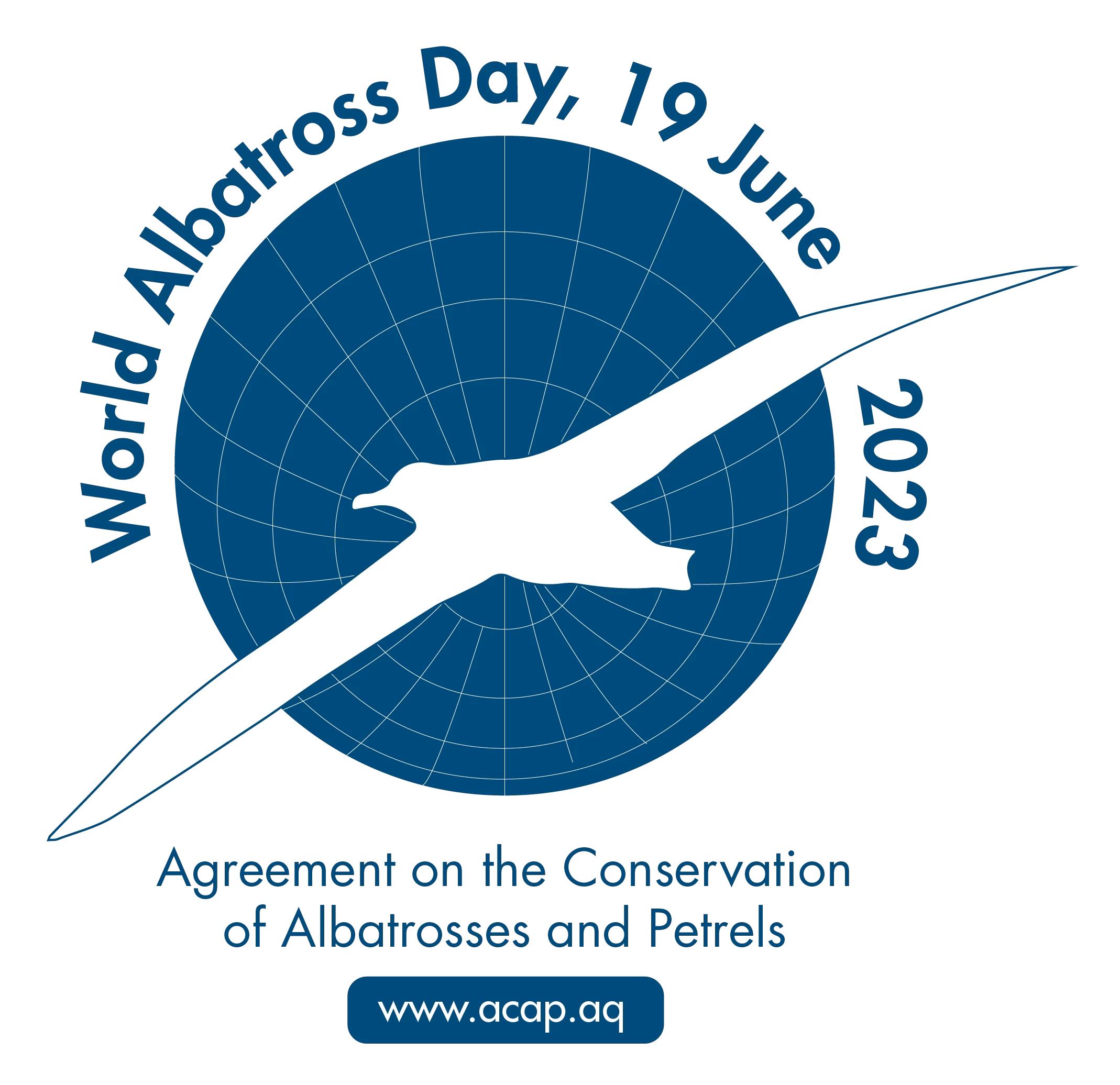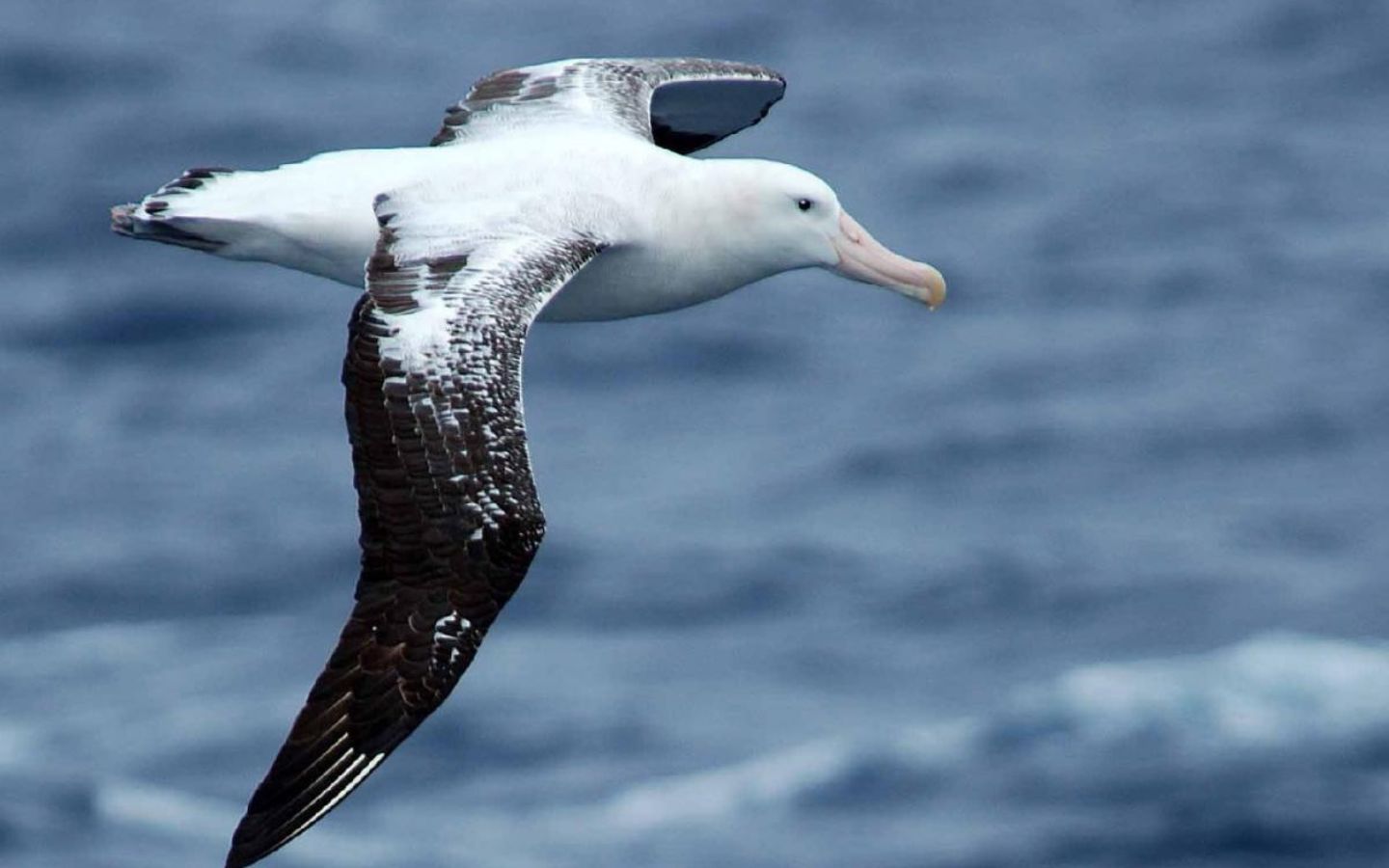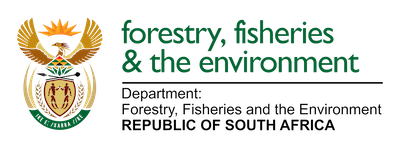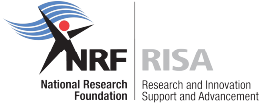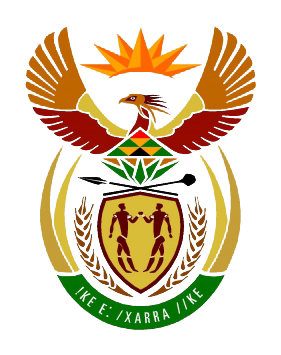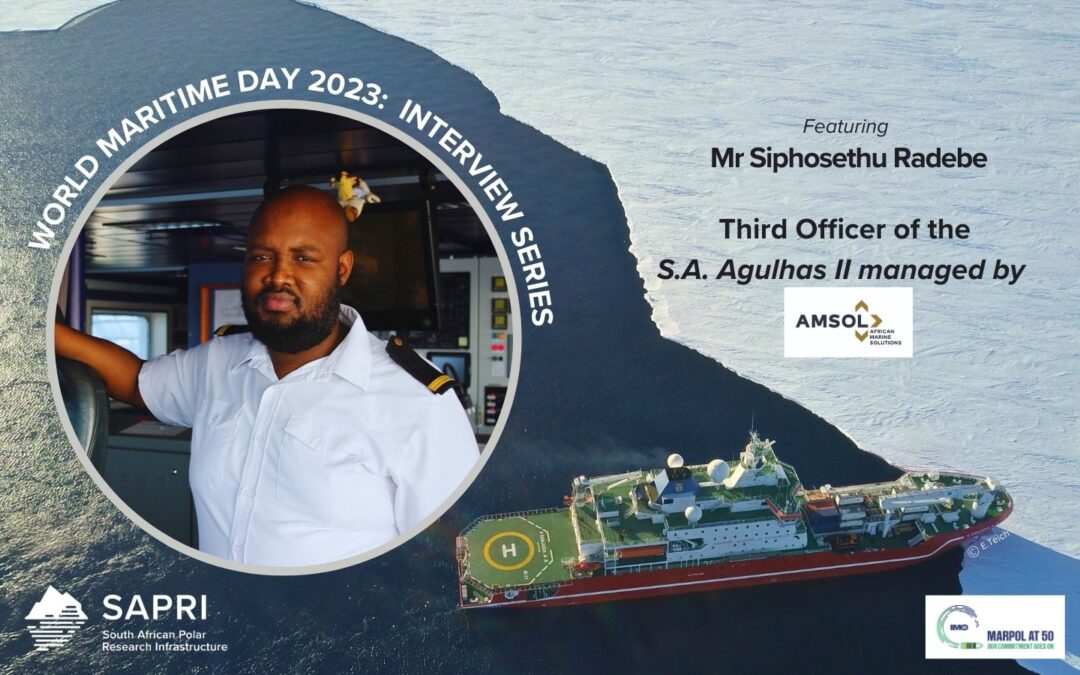
by Rabia Mathakutha | Sep 21, 2023 | Antarctica, Commemorative Days, Environment, International Days, SA Agulhas II, SA Polar Infratsructure, SA Polar Research Infrastructure, SANAP, SAPolarRI, SAPRI, Uncategorised
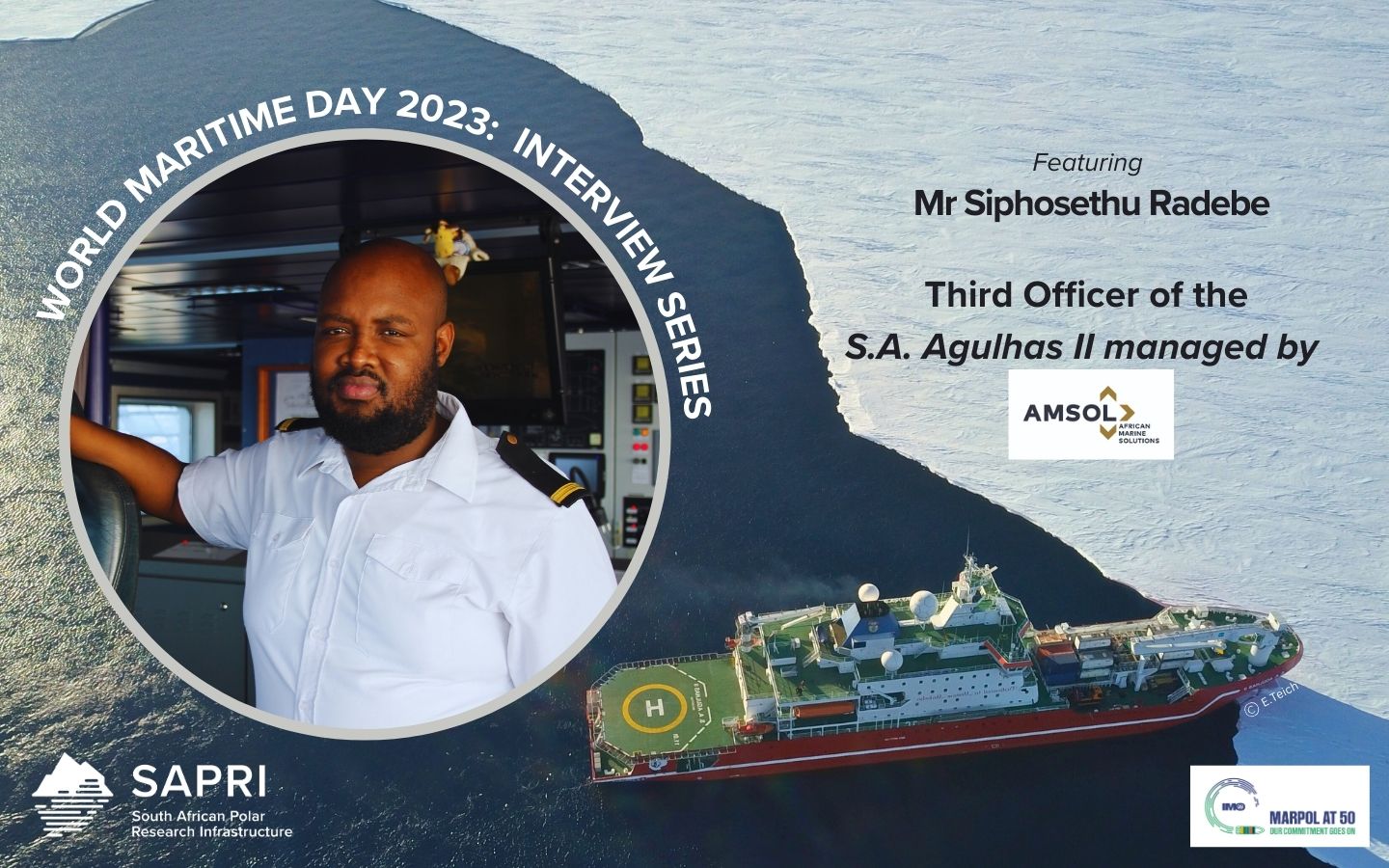
The Maritime Interview Series, leading up to World Maritime Day on September 28, 2023, aims to better acquaint us with and honour the seafarers on board the S.A. Agulhas II.
Did you miss Part 1? Click here.
The maritime industry connects countries, facilitates economic growth, enables scientific and research expeditions and plays a vital role in our everyday lives. However, the success of this enormous industry would not be possible without the men and women who sacrifice their time on land to serve our maritime needs.
The Maritime Interview Series Part 2 features Mr Siphosethu Radebe, Third Officer of the S.A. Agulhas II.
What does the Third Officer do on the ship?
The Third Officer, also referred to as the Third Mate, holds the position of a certified Officer In Charge of Navigational Watch (OICNW) and serves as an officer under the Second Mate. The Third Officer’s role encompasses a range of crucial duties, from navigational supervision to safety inspections and crew training. When assuming the navigational watch, as the Third Officer, I take charge of the bridge team, oversee the vessel’s maneuvering to maintain safety and course accuracy. The primary responsibility of the Third Officer revolves around ensuring safety on board. This includes conducting thorough inspections of gear lockers, lifeboats, and all equipment, verifying their proper functioning and adherence to safety standards, and overseeing emergency drills. Additionally, as the Third Officer, I play a pivotal role in directing line handlers, supervising cargo watches, managing anchor details, and providing training and guidance to crew members.
Mr Radebe’s Background and Journey into a Seafarer Career
I hale from Durban, KwaZulu-Natal and recently joined the S.A. Agulhas II with the vessel managing agent, African Marine Solutions (AMSOL). I obtained my National Diploma in Nautical Studies (previously referred to as Maritime Studies) from the Durban University of Technology (DUT), including in-service training with AMSOL, qualifying me as a maritime officer. I’m a SAMSA (South African Maritime Safety Authority) accredited officer after completing several short courses related to health and safety as part of the “Standards of Training and Certification of Watchkeeping” (STCW), as determined by the IMO. My experience as a seafarer extends beyond working on the S.A. Agulhas II, and includes experience on the vessel NOMASA (a Tug that was built in 2006, sailing under the flag of South Africa along the African west coast) and the Fire Fighting Vessel SIYANDA (built in 2010, also sailing under the flag of South Africa). My training included shadowing the First Officer on the S.A. Agulhas II.
What are some of the challenges that you experience in your line of work?
The long working hours and being away from home are challenging. However, this is often compensated by the decent break we receive after finishing a voyage, usually equating to approximately two months at sea and two months at home.
Any advice to someone who would like to pursue this career?
My best advice to anyone interested in pursuing a career in maritime is to work hard in school and be a top archiver, especially in the STEM disciplines (Science, Technology, Engineering, and Mathematics).
Part 3 will be shared on 22 September 2023.
Photo Credit: Rabia Mathakutha (South African Polar Research Infrastructure) and Eduan Teich via the Antarctic Legacy of South Africa (ALSA) Archive.
Written by: Rabia Mathakutha, South African Polar Research Infrastructure, 21 September 2023
Edited by: Anche Louw (South African Polar Research Infrastructure) and Ria Olivier (Antarctic Legacy of South Africa)
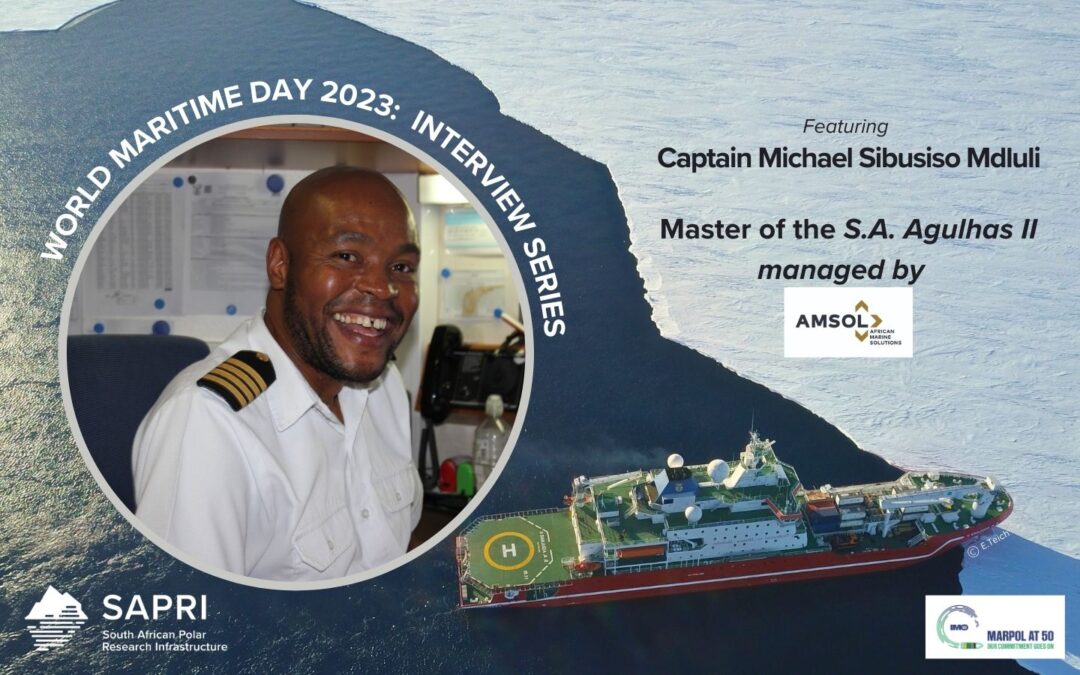
by Rabia Mathakutha | Sep 20, 2023 | Antarctica, Commemorative Days, Environment, International Days, SA Agulhas II, SA Polar Infratsructure, SA Polar Research Infrastructure, SANAP, SAPolarRI, SAPRI, Uncategorised
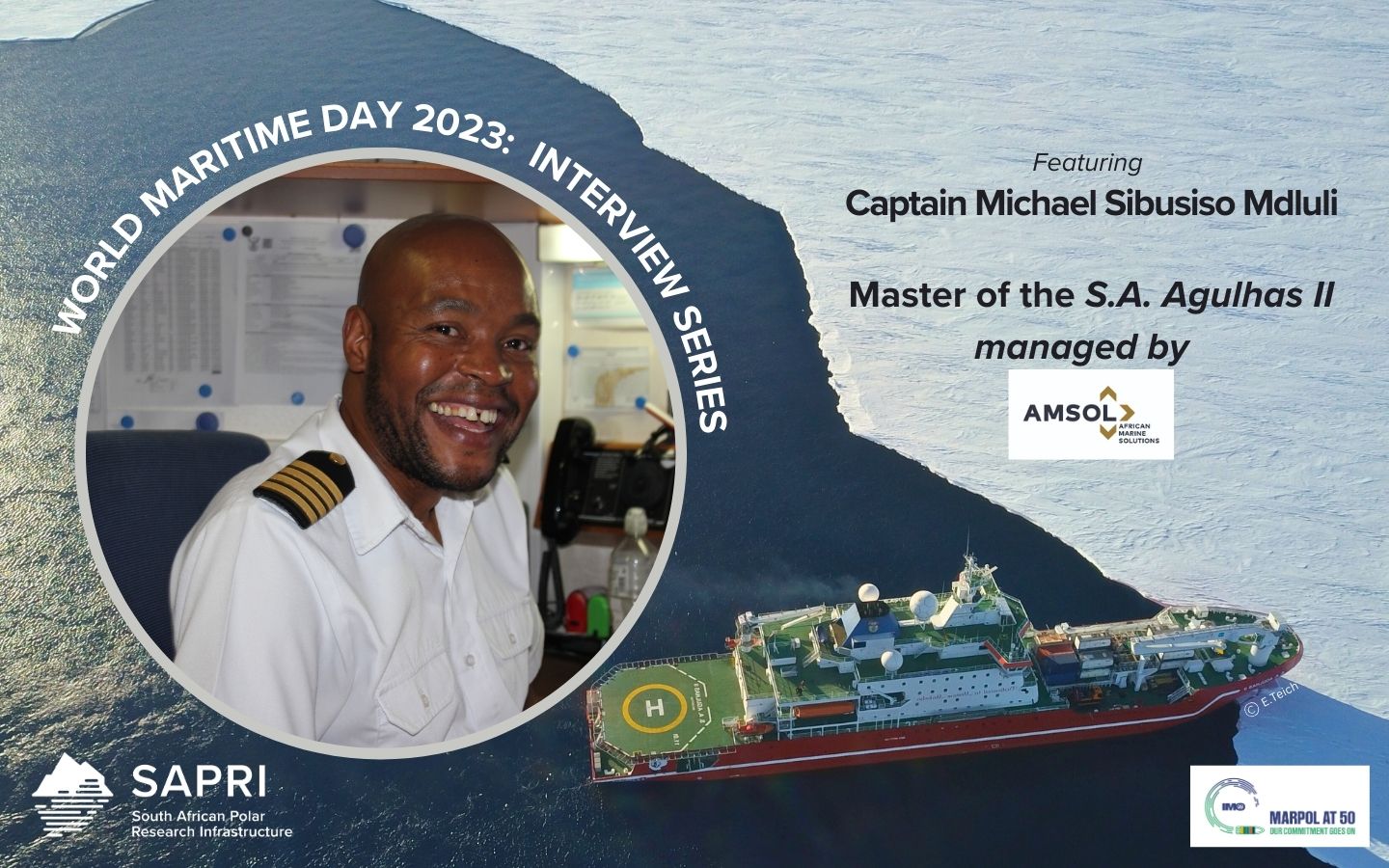
Leading up to World Maritime Day 2023
Every year on the last Thursday of September, nations around the world come together to celebrate World Maritime Day. This international observance aims to highlight the crucial role that shipping and seafaring play in our global economy and emphasise the importance of sustainable maritime practices. World Maritime Day provides an opportunity to raise awareness about the challenges faced by the maritime industry and to promote international cooperation in addressing them.
According to the International Maritime Organisation (IMO), This year’s World Maritime theme is “MARPOL at 50 – Our commitment goes on”. The theme spotlights the International Convention for the Prevention of Pollution from Ships (MARPOL), which covers the prevention of pollution of the marine environment by ships from operational or accidental causes.
Acknowledging the Role of South African Seafarers in the Maritime Industry
The maritime industry is the backbone of global trade. This industry connects countries, facilitates economic growth, enables scientific and research expeditions and plays a vital role in our everyday lives. However, the success of this enormous industry would not be possible without the men and women who sacrifice their time on land to serve our maritime needs. In recognising this, the South African National Antarctic Programme (SANAP) and the South African Polar Research Infrastructure (SAPRI), would like to honour some of our local seafarers working on board the South African research and supply vessel, the S.A. Agulhas II during various marine and Antarctic research related expeditions through the Southern, Indian and Atlantic Oceans. We would like to honour these seafarers in The Maritime Interview Series, leading up to World Maritime Day, on Thursday, 28 September 2023.
The Maritime Interview Series Part 1 features Captain Michael Sibusiso Mdluli, Master of the S.A. Agulhas II.
What is the Captain’s role on the ship?
“As the captain (also known as the Master), I hold the highest-ranking position on the vessel and I’m responsible for various critical tasks. I oversee the navigation, operations and safety of the S.A. Agulhas II, including managing and leading the crew. I have to ensure compliance with regulations and laws, oversee the vessel maintenance and administration, and handle commercial and legal responsibilities. My primary focus is thus on maintaining the safety, efficiency, and overall well-being of the vessel, crew, and cargo throughout its operations”.
Captain Mdluli’s Background and Journey into a Seafarer Career
Captain Mdluli grew up in a small village of Kwathunyana, which is 50 km south of Durban, and currently resides in Kloof, Durban. From humble beginnings as a Third Officer to obtaining the internationally recognised Master’s Certificate of Competency (Unlimited) in 2012, Captain Mdluli has been a seafarer for over 20 years. He has worked as a Master on several cargo vessels before joining the S.A. Agulhas II in 2016, and maintains that his experience on a research vessel such as the S.A. Agulhas II is both challenging and enjoyable. Some of the new and exciting experiences he mentioned about commanding the S.A. Agulhas II were learning how to navigate sea ice, a critical role during SANAE IV expeditions to Antarctica, as well as working with and learning from the scientists and researchers aboard the S.A. Agulhas II during research expeditions.
Captain Mdluli holds a Master’s Certificate of Competency (Unlimited), which makes him qualified to command a vessel of any size in the world’s oceans.
What do you like the most about your job?
“I enjoy travelling, seeing new places, meeting and interacting with different people, and learning from others. I also enjoy sharing my knowledge with others and empowering and inspiring the youth of South Africa”. To this, Captain Mdluli spoke about his involvement in school outreach programmes, where he visits local high schools in KwaZulu-Natal to share his knowledge and experiences as a seafarer.
What are some of the challenges that you experience in your line of work?
“Being away from loved ones and sometimes the long working hours that come with being a captain and overseeing everything and everyone”. He mentioned that he often has to be the last man standing. Captain Mdluli expressed that as much as he enjoys working with people and sees the crew as part of his family and always strives to get to know his crew on a personal level, this also comes with the challenge of dealing with individual personal matters that he is not always equipped to. However, he mentioned that the vessel managing agent, African Marine Solutions (AMSOL), offers counselling for their staff, which helps provide support during long voyages at sea.
Away from home: See the S.A. Agulhas II voyage schedule here.
Advice from Captain Mdluli:
“The best advice I would give to anyone interested in pursuing a career in maritime or wants to become a ship captain one day, is to choose STEM subjects at school (i.e., Science, Technology, Engineering, and Mathematics). Furthermore, to work at sea, you must have a positive mindset and show resilience, and most importantly, you must have a passion for it. Therefore, when looking to pursue any career, talk to the people who’ve been there or doing something related, to find out if it’s right for you”.
World Maritime Day reminds us of the vital role that the maritime industry plays in our interconnected world. The maritime industry is also particularly crucial in enabling the science and research in the Antarctic region and Southern Ocean through SANAP. SANAP recognises the global and national importance of safeguarding the environment of the Antarctic and Southern Ocean and protecting the integrity of ecosystems, both marine and terrestrial, in the region.
As we navigate towards a more sustainable future, let us recognise the invaluable efforts of seafarers who continue to navigate the world’s oceans, connecting nations, and powering global trade, science and research.
Photo Credit: Rabia Mathakutha (South African Polar Research Infrastructure) and Eduan Teich via the Antarctic Legacy of South Africa (ALSA) Archive.
Written by: Rabia Mathakutha, South African Polar Research Infrastructure, 20 September 2023
Edited by: Anche Louw, South African Polar Research Infrastructure and Ria Olivier, Antarctic Legacy of South Africa

by Ria Olivier | Jun 21, 2023 | Antarctica, Gough Island, International Days, Marion Island, Midwinter, Overwintering Team
We wish the South African team on Antarctica (SANAE 62), Marion Island (Marion 80) and Gough Island (Gough 68) a Happy Midwinter!
See midwinter greeting cards from the stations below.
Antarctica, SANAE 62
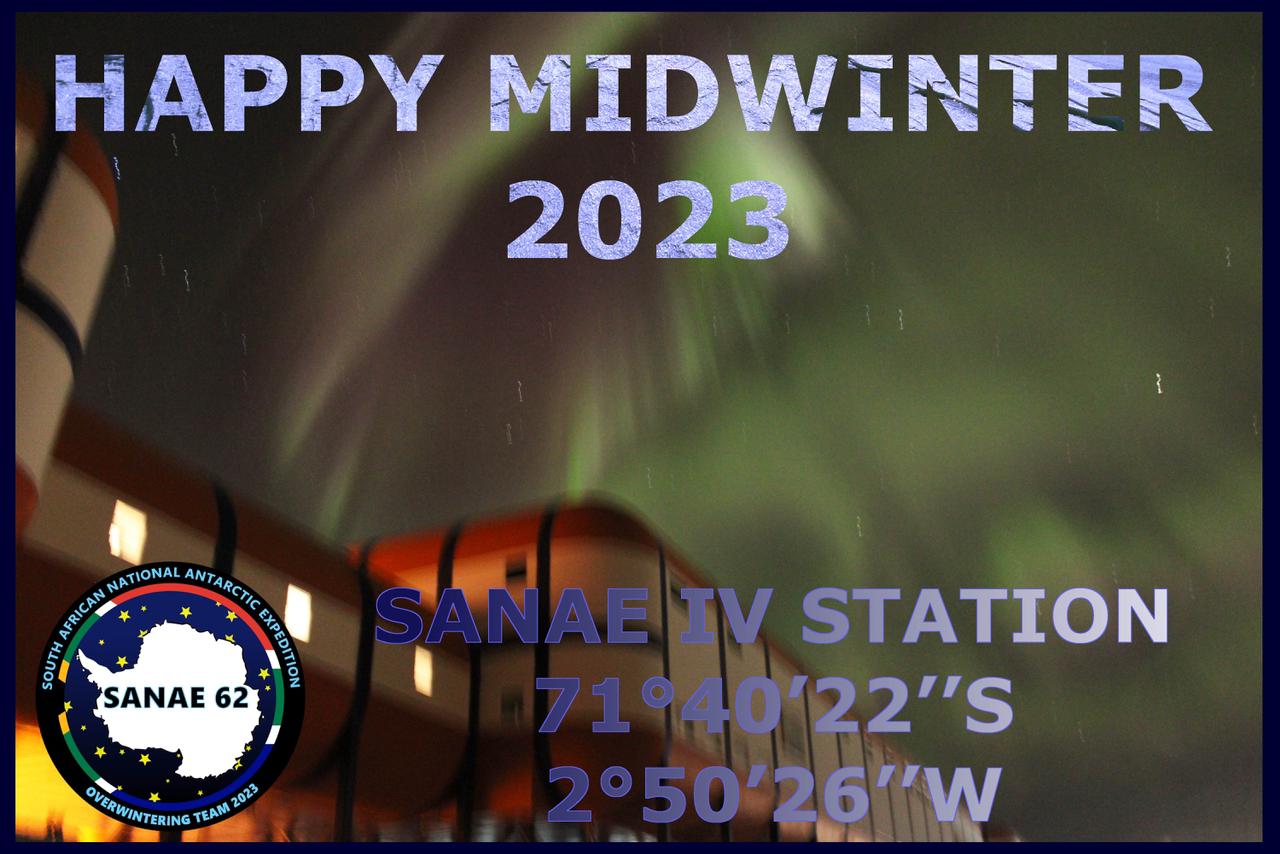
Marion Island, Marion 80
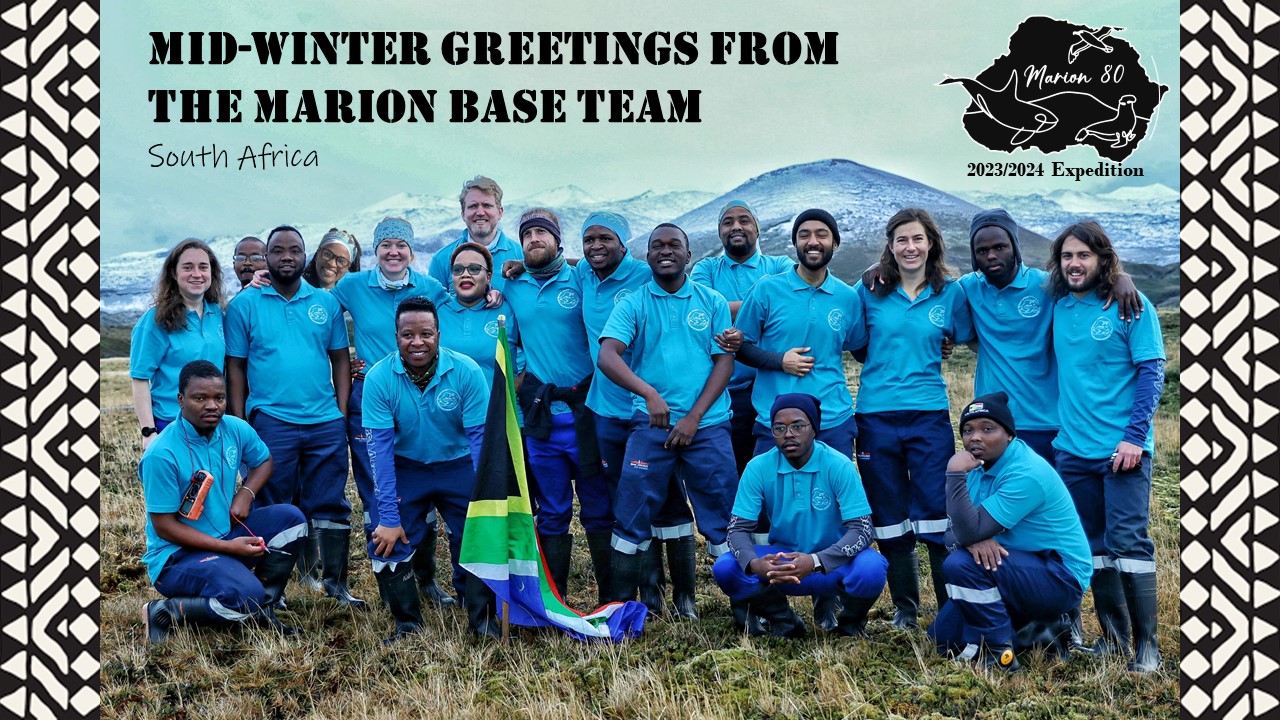
Gough Island, Gough68
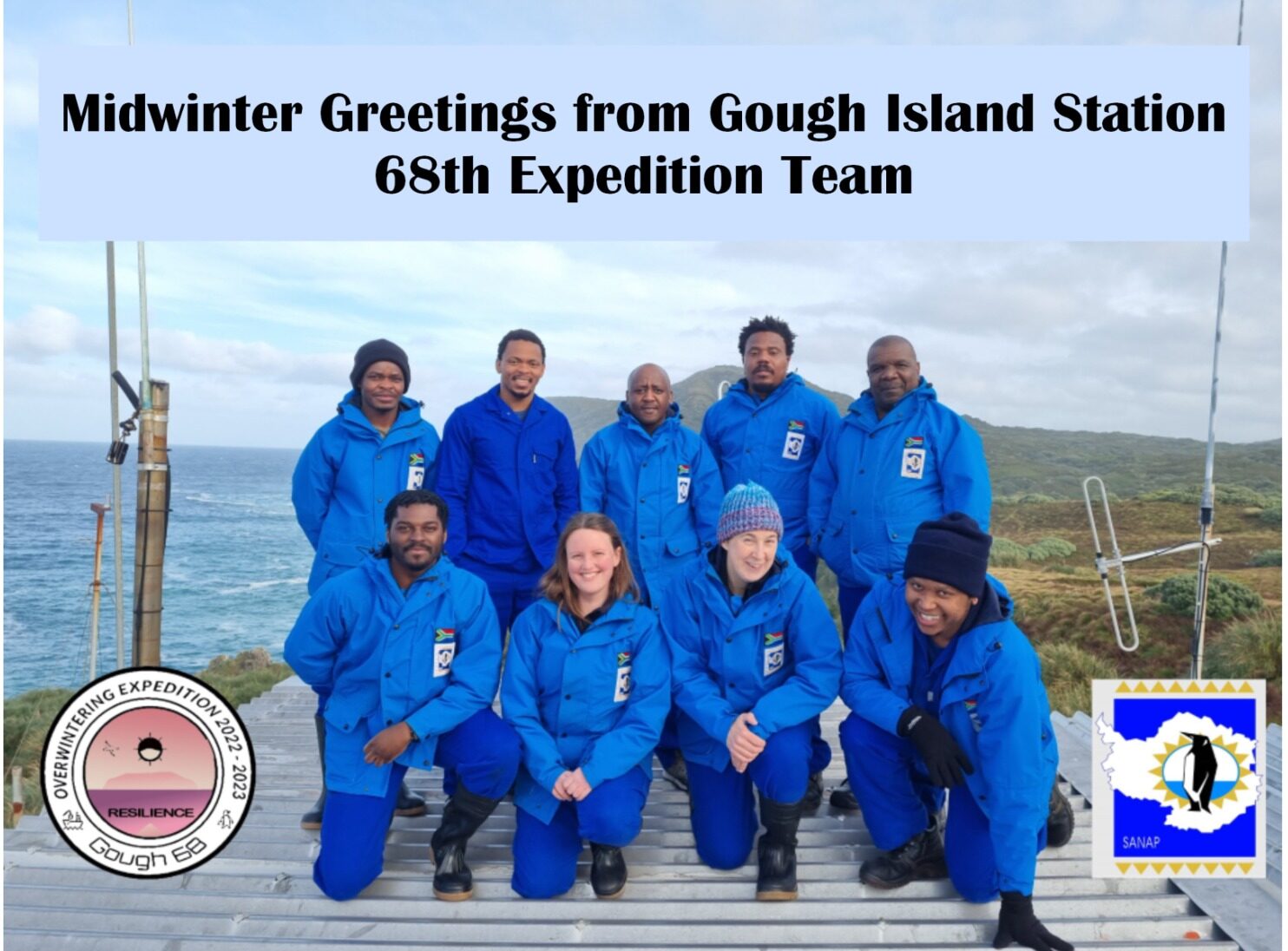
VIDEOS:
Follow APECS South Arica on Instagram for video interviews from Antarctica, to be posted throughout this week.
The first interview is with Dr. Abby Paton, Medical doctor at SANAE IV.
Scan the QR code below on click on the image to watch the interview.
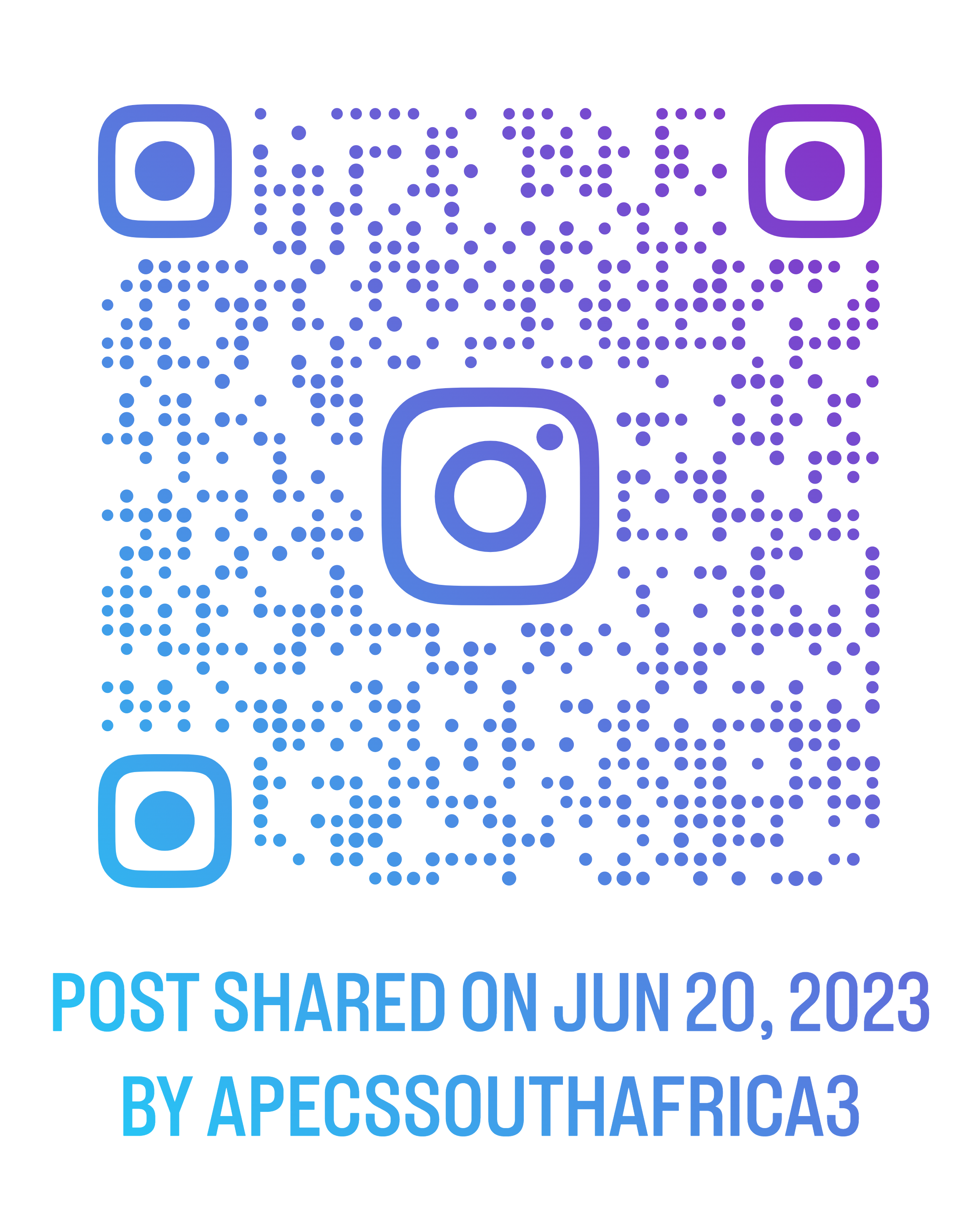
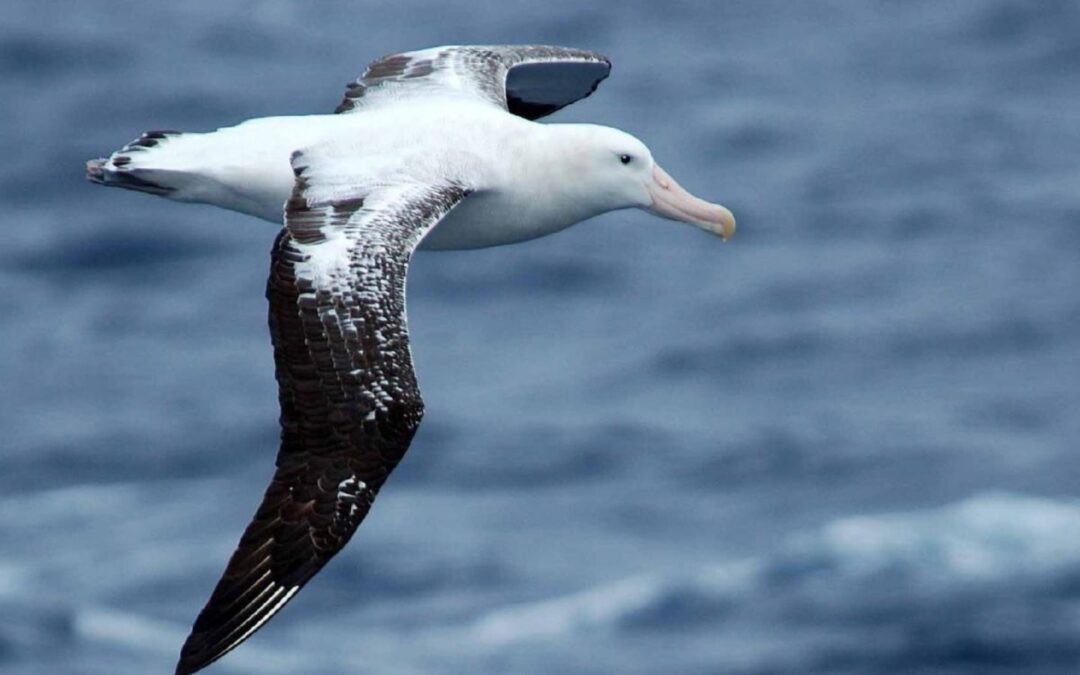
by Rabia Mathakutha | Jun 19, 2023 | Antarctica, Current Event, Environment, Important Dates, International Days, Invasion Biology, Marion Island, Mice Eradication, Research, SANAP, SAPolarRI, SAPRI, Southern Ocean, sub-Antarctic, Uncategorised
On 19th of June, the world comes together to celebrate World Albatross Day, an annual event dedicated to raising awareness about these magnificent seabirds and the conservation challenges they face. World Albatross Day serves as a crucial platform to educate and inspire action to protect these iconic ocean wanderers. With their graceful flight and important ecological role, albatrosses deserve our attention and concerted efforts for their survival.
South Africa is a long-standing Party to the International Agreement on the Conservation of Albatrosses and Petrels (ACAP). The agreement was brought into existence on 1 February 2004. The day also falls on the date of the signing of the Agreement 22 years ago. ACAP has chosen the theme “Plastic Pollution” to mark the fourth World Albatross Day, to be celebrated on 19 June 2023. This follows the inaugural theme “Eradicating Island Pests” in 2020, “Ensuring Albatross-friendly Fisheries” in 2021, and “Climate Change” last year in 2022.
Albatrosses close to home
Multiple species of albatross are found across the Southern Ocean. This includes Antarctic, sub-Antarctic and subtropical waters. These albatrosses breed on sub-Antarctic and Antarctic islands including South Africa’s sub-Antarctic Marion Island. Marion Island holds significant breeding populations of four albatross species – the Wandering Diomedea exulans, Grey-headed, Light-mantled Phoebetria palpebrata and Sooty Phoebetria fusca. In addition to this, two other species of albatrosses have been seen ashore on Marion Island – Black-browed and Indian Yellow-nosed Thalassarche carteri. To read more about the “other” two species of albatrosses recorded from Marion Island as uncovered by one of our researchers Kim Stevens, click here.
The Challenges Facing Albatrosses
Albatrosses face a range of challenges that threaten their survival. One of the most pressing issues is longline fishing, where albatrosses can become accidentally caught on fishing hooks, leading to injury or death. Pollution, habitat destruction, climate change, and invasive species on breeding islands also pose significant risks to their populations. World Albatross Day sheds light on these challenges and promotes measures to mitigate their impact. The pressing threats to Albatrosses in the Southern Ocean include invasive species on breeding islands, most notably, the house mice on Marion Island. Introduced to Marion Island by sealers in the early 19th century, the house mice have been inflicting devastating impacts on the ecology of the island, including killing its native seabirds.
Conservation Efforts and Awareness
The Mouse-Free Marion Project is a registered non-profit company in South Africa, established to eradicate the invasive albatross-killing mice on Marion Island. The project was initiated by BirdLife South Africa and the South African Department of Forestry, Fisheries and the Environment (DFFE). Upon successful completion, the project will restore the critical breeding habitat of over two million seabirds, many globally threatened, and improve the island’s resilience to a warming climate. For more information or to support the project please visit mousefreemarion.org.
May 2023: Barbara Creecy, Minister of Forestry, Fisheries, Forestry and the Environment, confirms government support for the Mouse-Free Marion Project in her budget speech.
What can you do?
In keeping with this year’s theme for World Albatross Day “Plastic Pollution”, as an individual you can participate by reducing plastic pollution, organising or joining local beach cleanups, where you can help remove litter and prevent it from reaching the oceans, including minimising the use of single-use plastics. Education plays a vital role in driving positive change for albatross conservation. Increase your understanding of albatross biology, their unique adaptations, the threats they face, and the ecological importance they hold in marine ecosystems by reading some of these selected publications here. By raising awareness and fostering partnerships, we can work collectively to safeguard albatross populations and their habitats.
Let us unite in our efforts to protect these majestic ocean wanderers and ensure a future where albatrosses continue to grace our oceans for generations to come.
YOU CAN HELP SAVE MARION ISLAND’S SEABIRDS
Images: The Mouse-Free Marion Project (text added to MFM poster) and Antarctic Legacy of South Africa (ALSA)
Rabia Mathakutha, South African Polar Research Infrastructure (SAPRI DPS Node), 19 June 2023
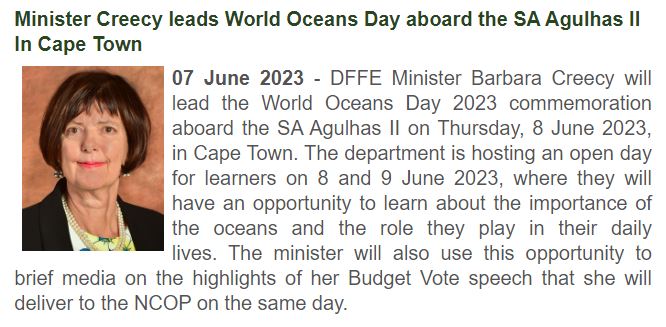
by Rabia Mathakutha | Jun 8, 2023 | Announcement, Antarctica, Commemorative Days, Current Event, Discover, Environment, Important Dates, International Days, Marine Protected Area, Oceanography, SA Agulhas II
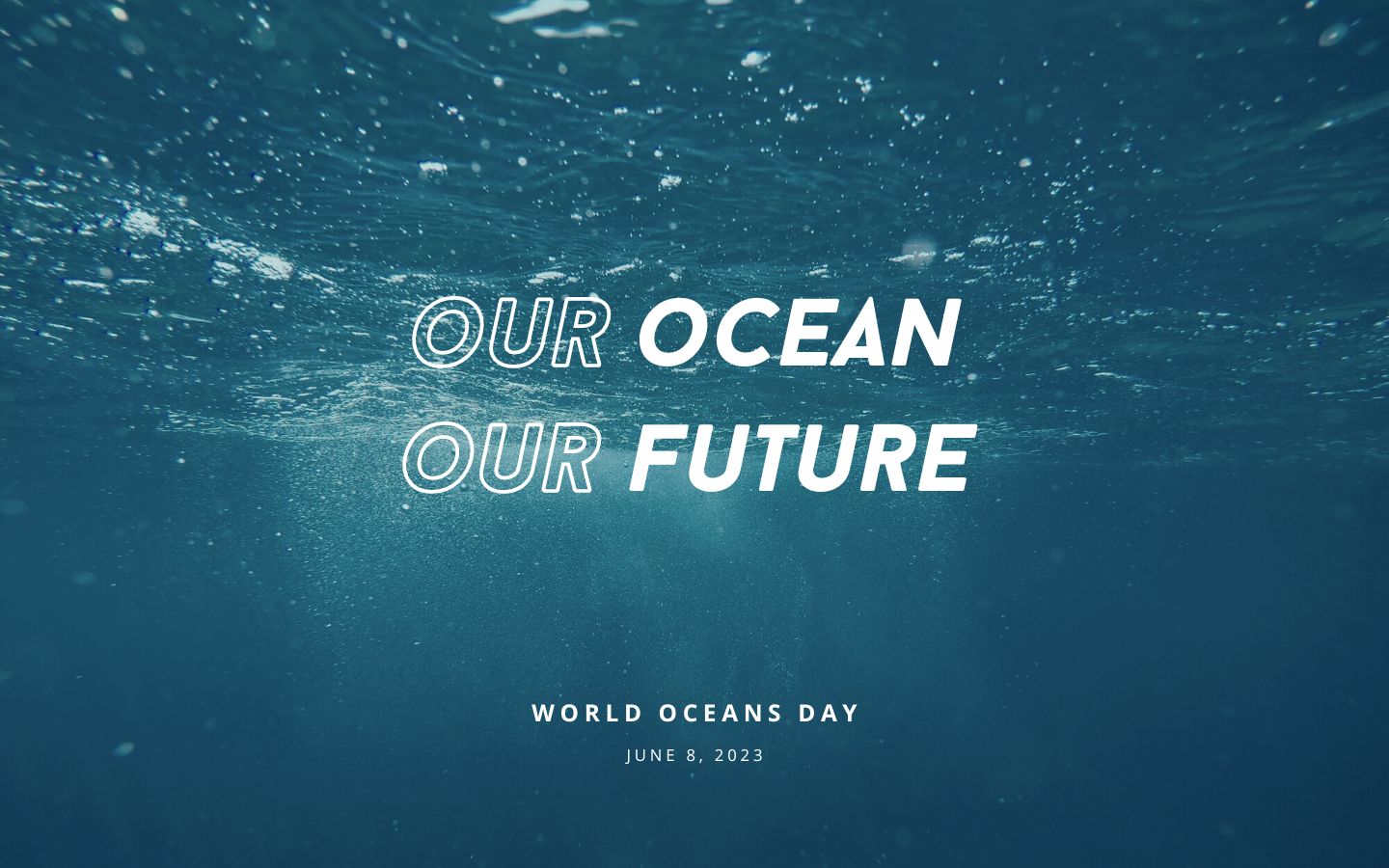
Preserving our precious marine ecosystems
Every year on the 8th of June, the world comes together to celebrate World Oceans Day, a global event dedicated to honouring and protecting our vast marine environments. This special day serves as a reminder of the significant role oceans play in sustaining life on Earth and the urgent need to conserve and restore their health. With over 70% of our planet covered by oceans, it is crucial to recognise the immense value they hold and take action to safeguard their future.
World Oceans Day is a day to appreciate the abundant biodiversity that thrives in these waters and reflect on the numerous benefits oceans provide, such as climate regulation, food security, and economic resources.
Event of interest on 8 June 2023
Significance of World Oceans Day
The delicate marine ecosystems face numerous threats, including pollution, overfishing, habitat destruction, and climate change. World Oceans Day emphasises the need to protect and restore these ecosystems through sustainable practices.
Promoting conservation efforts
What can you do?
Individuals can participate by organising or joining local beach cleanups, where they can help remove litter and prevent it from reaching the oceans. By minimising the use of single-use plastics and making environmentally conscious choices, individuals can also contribute to reducing pollution in our oceans.
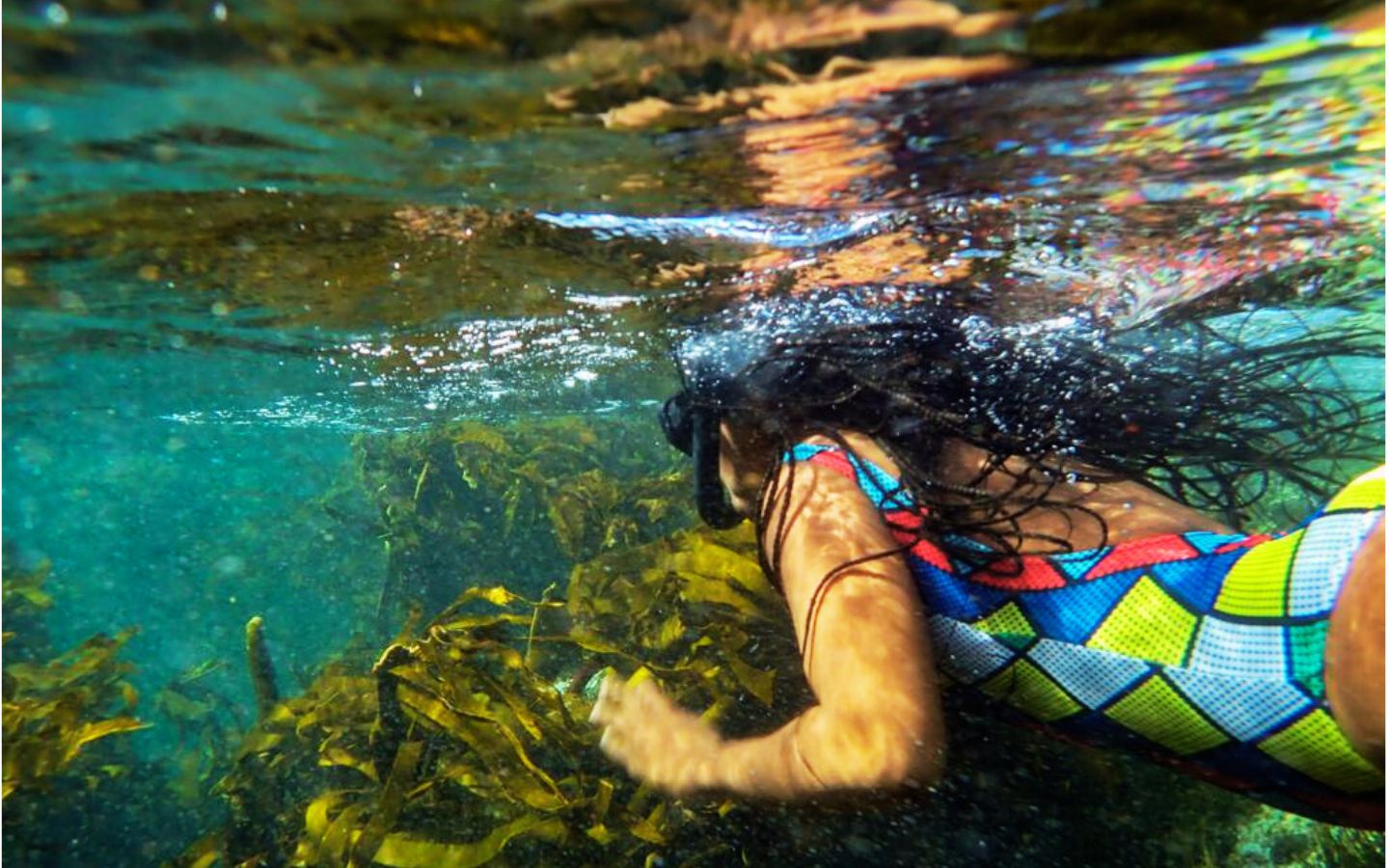
Recreational diving with a purpose. Cleaning the ocean one dive at a time. Image credit: Thando Mazomba.
Take-home message
World Oceans Day is an annual celebration that reminds us of the vital role oceans play in sustaining life on Earth. It urges us to recognise the urgent need to protect and restore marine ecosystems through sustainable practices, education, and policy changes. By coming together on this special day, we can create a collective voice for ocean conservation and work towards a future where our oceans thrive, benefiting both present and future generations. Let us celebrate World Oceans Day and commit to preserving the precious wonders of the deep blue.
On social media
Rabia Mathakutha & Anche Louw, South African Polar Research Infrastructure (SAPRI DPS Node), 08 June 2023
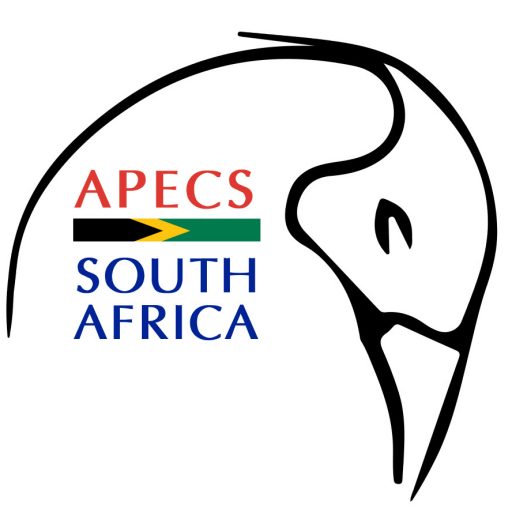
by Ria Olivier | Apr 21, 2023 | International Days, News, Research, Science, Southern Ocean
Tomorrow, 22 April 2023, is Earth Day!
We support environmental protection. One way to encourage people to protect the environment is for environmental scientists to communicate scientific findings in a way that is digestible for your audience.
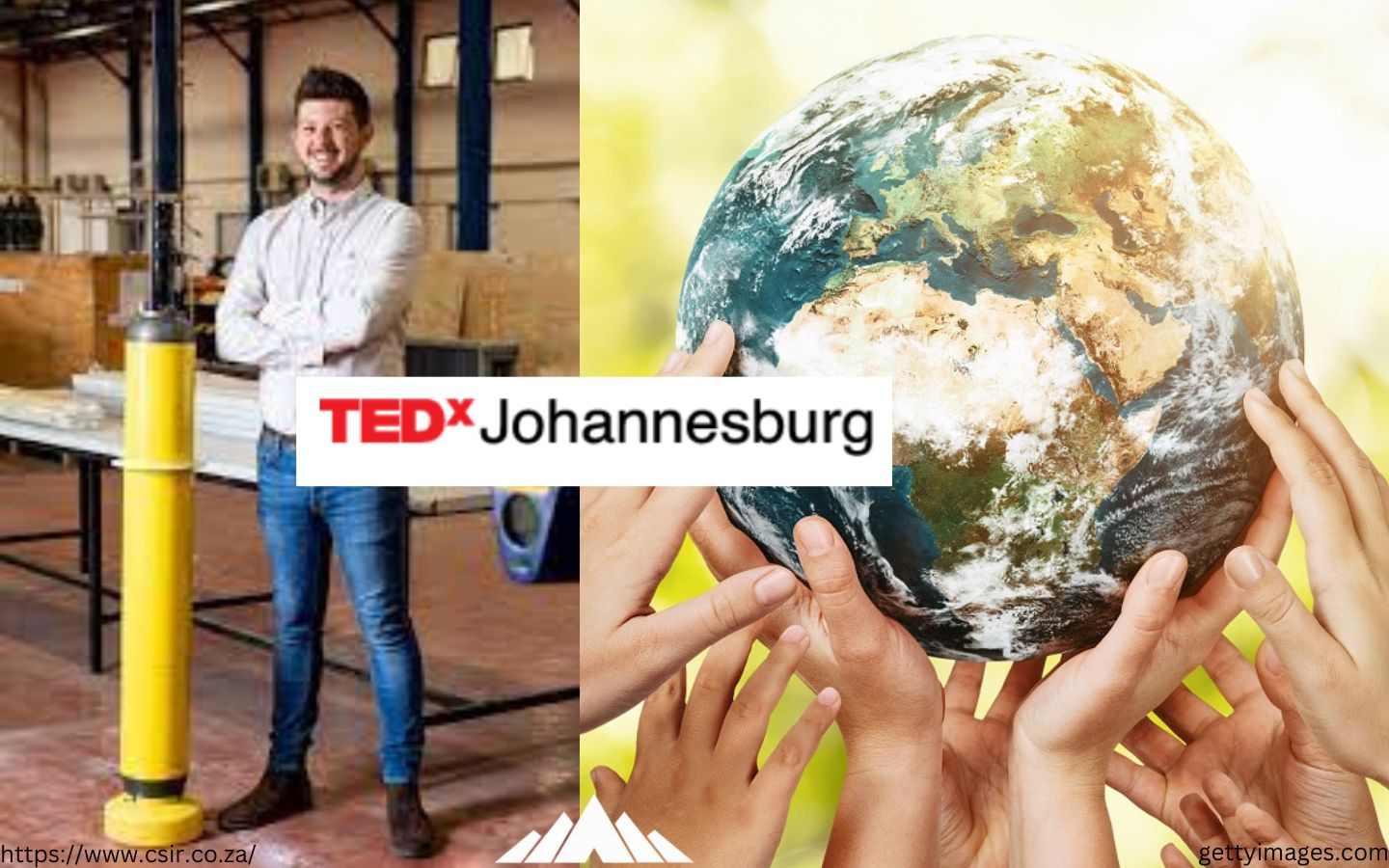
It is with great pleasure that we share that Dr Thomas Ryan-Keogh will be a speaker at TEDx Johannesburg Countdown to talk about the impacts of climate change on the Southern Ocean. “His talk will contribute towards the dialogue and action on climate change and will showcase how the CSIR is contributing towards global research efforts on the impact of climate change in Antarctica and the Southern Ocean”.
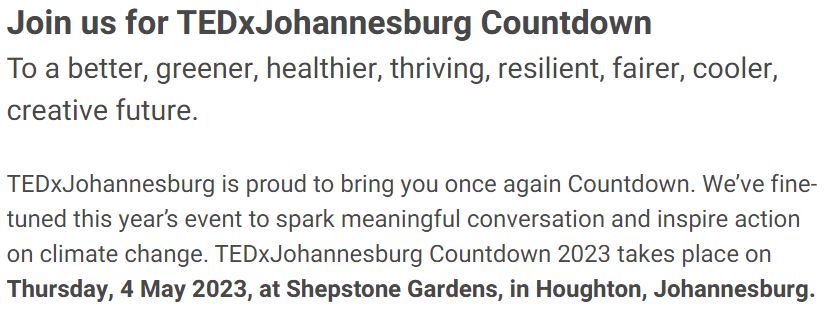 Book your seat today!
Book your seat today!
TEDx Johannesburg is a great platform where “remarkable people doing great work can amplify their ideas on the world wide web”.
“We believe that their ideas, delivered at our sought-after events, and distributed via video on the web, will change the world” – TEDx Johannesburg.
At this event, Tommy will have only 12 minutes to share his recent oceanographic research findings, “which showed that the natural carbon cycle in the Southern Ocean is being impacted and that it could be causing even more harmful climate impacts. These findings were recently published in the top-rated journal Science under the title: Multidecadal trend of increasing iron stress in Southern Ocean phytoplankton” – CSIR
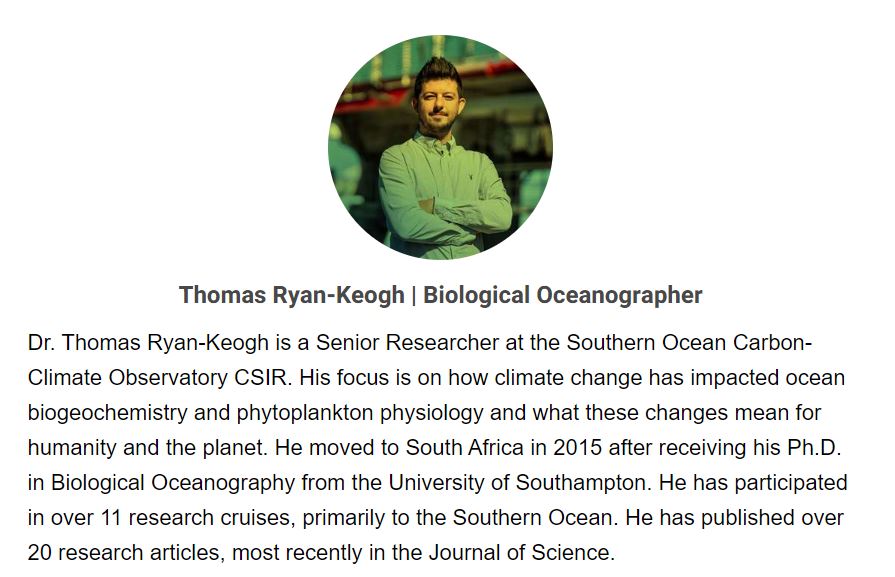
Source: TEDxJohannesburg Countdown
 Tommy is the Chair of the Association of Polar Early Career Scientists of South Africa. APECS-SA is a “National Committee of APECS international, a non-profit and voluntary organization which focuses on improving communication between young polar researchers on a local and international level.”
Tommy is the Chair of the Association of Polar Early Career Scientists of South Africa. APECS-SA is a “National Committee of APECS international, a non-profit and voluntary organization which focuses on improving communication between young polar researchers on a local and international level.”
On Social Media:
Watch this video below and learn more about the current climate crisis and The Intergovernmental Panel on Climate Change (IPCC) climate report.
“This is an important message for the world to take in: make the economy, make the development clean and climate friendly” Hoesung Lee (Chair of the IPCC).
Find the IPCC report here.
Anche Louw, South African Polar Research Infrastructure (SAPRI DPS Node), 21 April 2023

